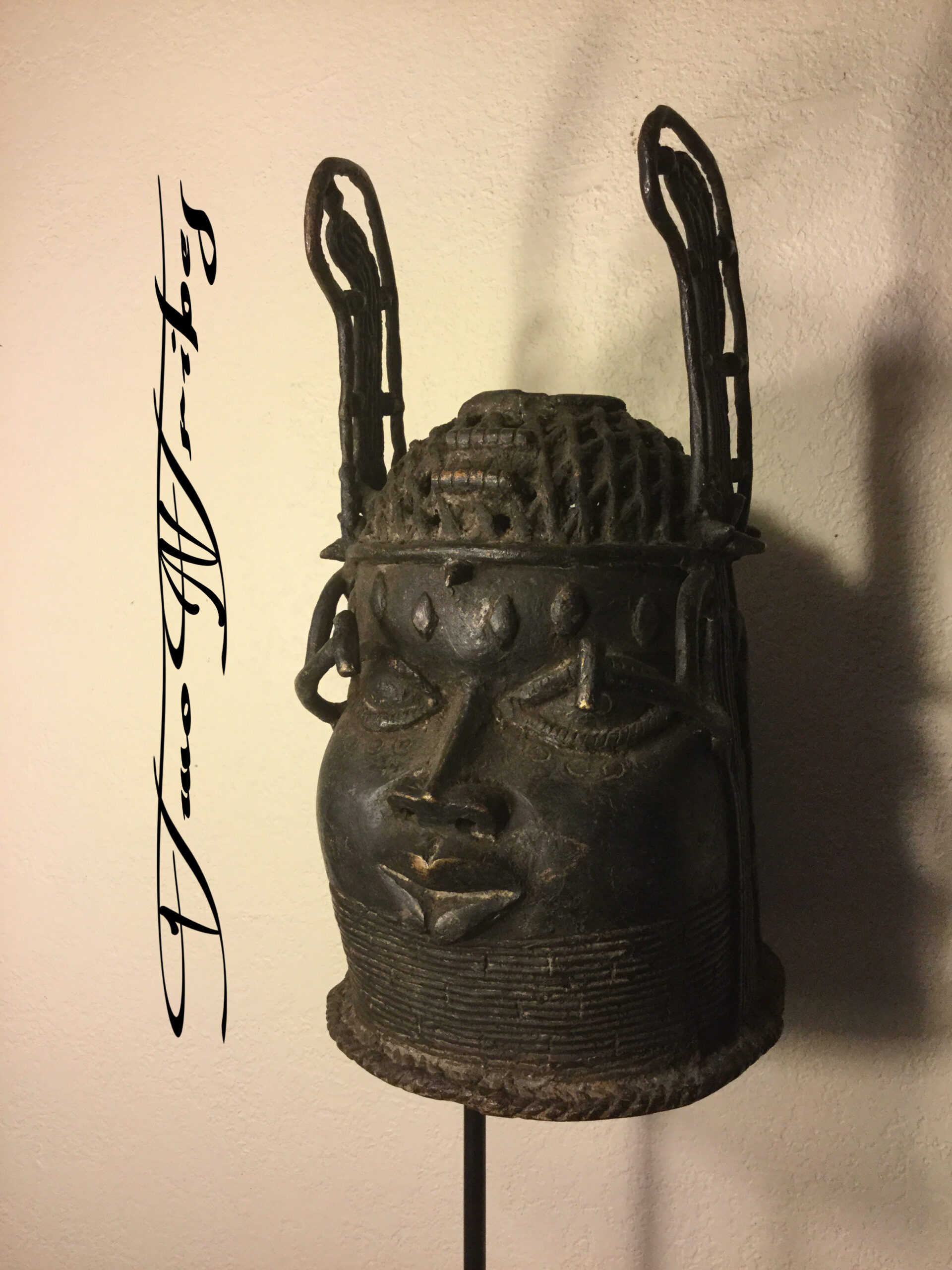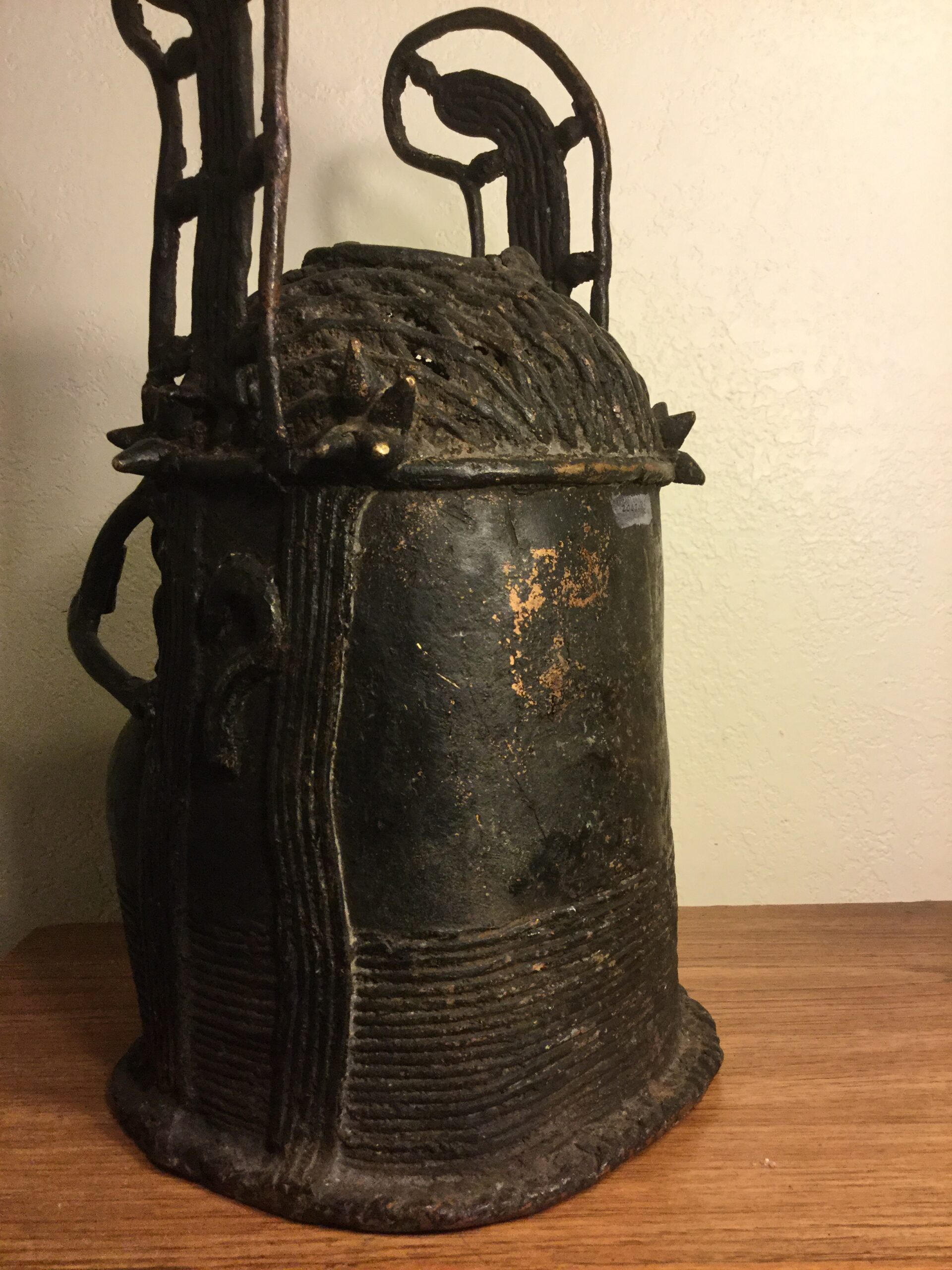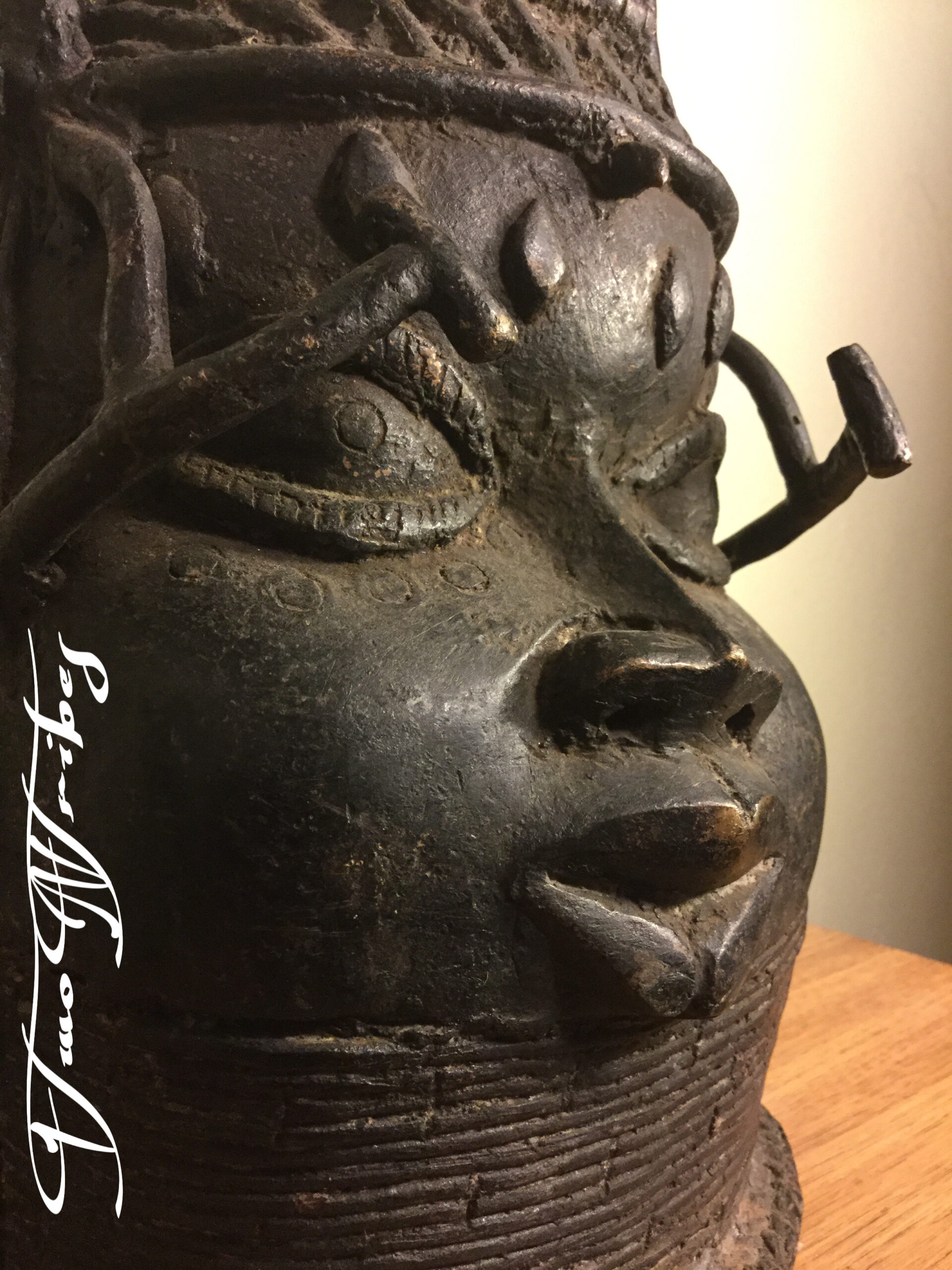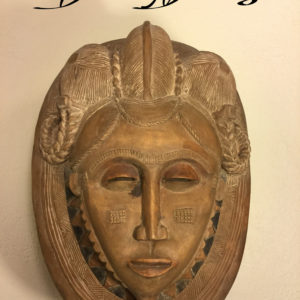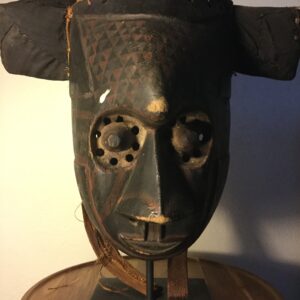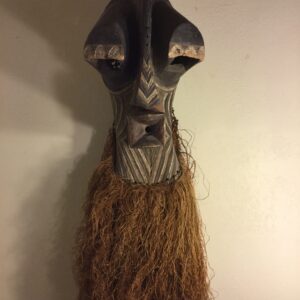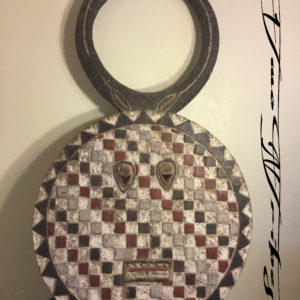Description
The leaders of the kingdom of Benin in present-day Nigeria trace their origins to a ruling dynasty that began in the fourteenth century. The title of “oba,” or king, is passed on to the firstborn son of each successive king of Benin at the time of his death. The first obligation of each new king during this transfer of rule is to commemorate his father with a portrait cast in bronze and placed on an altar at the palace. The altar constitutes an important site of palace ritual and is understood to be a means of incorporating the ongoing influence of past kings in the affairs of their descendents.
In honoring the royal ancestors, the cast-brass heads refer to the special role of the head in directing not only the body but also a person’s success in life. Taken further, the welfare of the entire kingdom depends upon the king’s head, which is itself the object of worship. The placement of brass heads on the ancestral altar is a vivid reminder of the oba’s role in successfully guiding the kingdom throughout his reign.
The overall cylindrical shape, extended beaded collar covering the chin, addition of bead clusters to the crown, and wide flange at the base of this brass head identify it as belonging to a later period.
